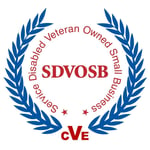Here is a good addition to our thought leadership series of articles. An interesting read by KC Reid about change management and the military.
KC Reid is a former DIA agent who at the time of this post was currently working for Booz Allen Hamilton in Washington, DC. She penned an article highlighting challenges to the U.S. military that stem from the cultural transition in the work force from the generation known as “Millennials” (those born between 1980 and 1996) to the generation that follows, known as the Network Generation, or “NetGens” (born after 1997).
Generational change is not new to the military, nor to manufacturing and process industries. Companies have always had to adapt approaches to recruiting, training, retention, and leading successive generations with different values, perspectives and work habits than prior generations in the work force, but the changes may be more significant now because rapid technology, media, and cultural change make the generational differences seem more divergent.
There are distinct differences in how NetGens think, learn, train, and relate that will challenge current front-line leaders and senior management as they lead these new employees into becoming the actualized, engaged, and proficient leaders that demanding industrial enterprises require.
.jpeg?width=543&name=AdobeStock_60092652%20(1).jpeg)
This new generation grew up with technological savvy that will ultimately revolutionize industry. They are capable of much, but deep understanding of the generational differences at play in industry today is critical to future success. Companies must attract new and capable employees, but ultimately the success of the industry depends on how those employees perform in rigid process flows that submit to the realities of physics and chemistry and not to more ethereal requirements of consumers and culture. In well-intended efforts to accommodate the perceived demands of the youngest and least experienced employees, leaders cannot forget the risks and demands of the very operations and industries they strive to lead.
The methods used to hire, engage, train, communicate with and incentivize employees in the years ahead may present tradeoffs that ultimately reduce effectiveness in demanding, risky, and dynamic work environments. Such industrial operations will always require deep competence, sustained focus, and attention to detail. Figuring out how to manage these tradeoffs will be the difference between success and failure.
When it comes to enabling new employees to become the best generation industry has seen, leaders must carefully consider and implement effective ways to “meet them where they are” without sacrificing what industry demands.
At the Vetergy Group, we stand ready to help. Let’s talk! Contact Us
Have some ideas on this thought leadership article you'd like to share? Let us hear from you below!



 1200 Corporate Drive, Ste 170
1200 Corporate Drive, Ste 170




